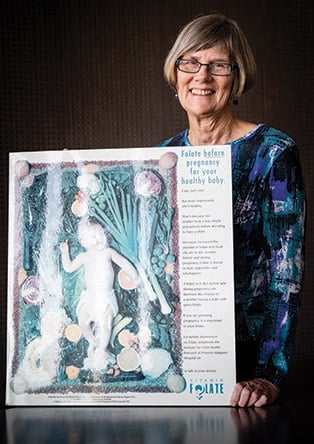 A key tool in the push to achieve mandatory folate fortification came in the form of data provided by the Western Australian Register of Developmental Anomalies (WARDA) – originally established by Professors Carol Bower and Fiona Stanley as the WA Congenital Malformations Registry in 1980.
A key tool in the push to achieve mandatory folate fortification came in the form of data provided by the Western Australian Register of Developmental Anomalies (WARDA) – originally established by Professors Carol Bower and Fiona Stanley as the WA Congenital Malformations Registry in 1980.
The first of its kind in Australia, the Registry was eventually merged with the WA Cerebral Palsy Register to become WARDA, with the State Government making it compulsory to report developmental anomalies.
WARDA – now seen as a national exemplar and one of the most complete registers of developmental anomalies in existence – provided vital, high-quality data demonstrating that rates of NTD remained high in the Aboriginal population despite health promotion campaigns for voluntary maternal folic acid supplement use.
The register continues to enable the ongoing monitoring of the impact of mandatory fortification, as well as providing data for other kinds of research and serving as an important source of information for policymakers and health service providers.
“It was established as a general birth defects register but the very first research project that we did with the data being collected was a study of NTD and folate,” Professor Bower said.
“It has since been an important source of information for many, many other projects, such as our work in the area of FASD, which includes efforts to extend the age at which FASD can be notified to the register from six to 15 years of age.”
